The next Supreme Court case could spell the end of Purdue Pharma
The court is weighing in on a potential settlement involving the long-maligned company

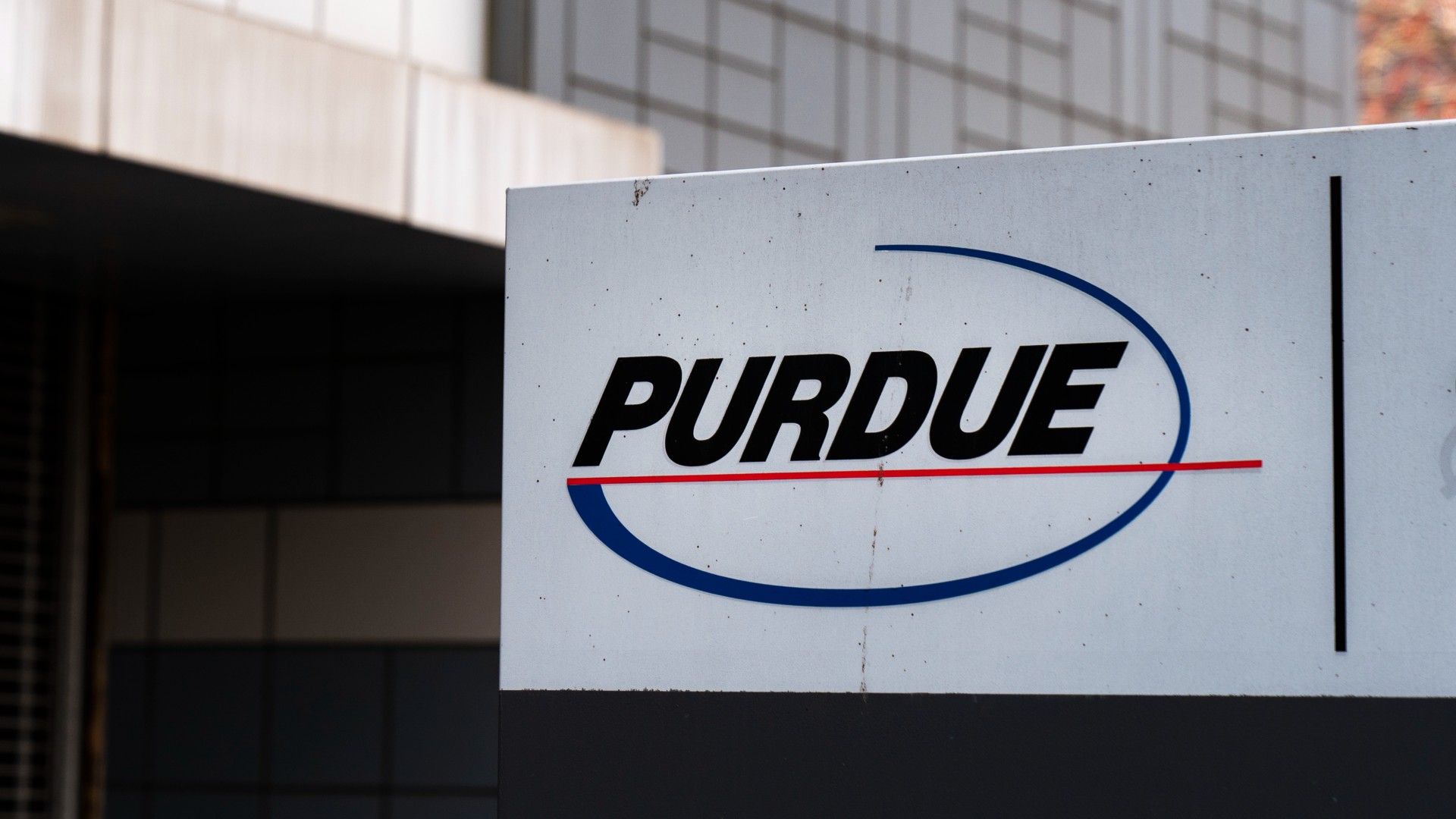
A free daily email with the biggest news stories of the day – and the best features from TheWeek.com
You are now subscribed
Your newsletter sign-up was successful
The U.S. Supreme Court is hearing many important cases this term, but perhaps none are as consequential — or controversial — as one involving Purdue Pharma. The long-maligned pharmaceutical brand, often accused of singlehandedly turbocharging America's opioid crisis as the maker of OxyContin, is caught in the middle of a settlement that will see the high court weigh in.
The Supreme Court will hear oral arguments Monday in Harrington v. Purdue Pharma L.P. The case will scrutinize a previously agreed-to bankruptcy deal that would have Purdue's former owners, the Sackler family, pay victims of the opioid crisis $6 billion in compensation in exchange for the family's immunity from further civil lawsuits. Under the deal, Purdue Pharma would also cease to exist and be reorganized under a new company, Knoa Pharma, that would work to manufacture opioid addiction treatments.
The bankruptcy deal was initially approved but was blocked earlier this year by the Justice Department, which asked the Supreme Court to review the outcome. The case is one of "grave national importance," CNN reported. The court's ruling will not only decide Purdue's fate but also declare "whether a bankruptcy plan can be engineered to give legal immunity to a third party — in this case, members of the Sackler family," The New York Times reported.
The Week
Escape your echo chamber. Get the facts behind the news, plus analysis from multiple perspectives.

Sign up for The Week's Free Newsletters
From our morning news briefing to a weekly Good News Newsletter, get the best of The Week delivered directly to your inbox.
From our morning news briefing to a weekly Good News Newsletter, get the best of The Week delivered directly to your inbox.
A 'pivotal moment' in the crisis
Harrington v. Purdue Pharma L.P. marks a "pivotal moment in the crisis — and a coda for a company that for many became a symbol of the ravages prescription painkillers inflicted across the country," Adriel Bettelheim wrote for Axios. However, Purdue's complicity in the opioid crisis "makes a deal that allows the Sackler family to hold onto any of its billions particularly distasteful."
And while critics of the Sacklers may be angered by a deal that would provide them immunity, approval of the settlement could be the best option for victims, The Economist wrote. If the Supreme Court were to strike down the settlement and allow victims to sue the Sacklers, "in all likelihood they would end up with less," Baruch College law professor William Organek told The Economist. The Sacklers' extreme wealth would allow each member of the family to "mount his or her own defense. Lawsuits and collection of judgments would take years, if not decades."
But many families who have been victimized seem to be straddling the line on what to do. The case "has created a tough situation for families who are eager for the funds to be distributed for drug treatment and other services, but who also want the Sacklers to face justice for the company’s role peddling addictive prescriptions," Samantha Michaels wrote for Mother Jones.
Many have been struggling with the crux of the case for a long time. Even though it would shield the Sacklers, "the urgency of the opioid crisis is why I voted for the settlement," Cheryl Juaire, who lost two sons to opioids, opined for The Washington Post in January 2022. "Sparing other American families the grief I've known is my top priority."
A free daily email with the biggest news stories of the day – and the best features from TheWeek.com
'Hit the Sacklers where it hurts'
Even though the settlement would force the Sacklers to pay billions, some argue it's not enough. "The only way to get closure is to hit the Sacklers where it hurts," William Nelson, an Indiana judge whose son died from OxyContin, told The Wall Street Journal. Nelson "wants the Sackler family to spend years in court defending themselves from civil lawsuits."
Others seem to agree that the payout is not the primary goal. "This money is a pittance," Cynthia Munger, whose son became an addict, told the Journal. Munger added that if the Supreme Court "cannot address the civil injustice of this case, we would not have a remote chance of criminal justice for parties who are absolutely guilty."
"The Sacklers do not want to have to be in the bankruptcy fishbowl," Georgetown University law professor Adam Levitin told NPR. Levitin noted that the settlement would shield not only the Sacklers, but also their consultants. None of them would have to pay any of the victims, but "all of them would be released from liability in the deal," Nina Totenberg reported for NPR.
Bankruptcy "is supposed to provide relief for honest but unfortunate debtors," Levitin added. It allows people to "come clean about their assets and give up all of their assets to their creditors. The Sacklers are not doing either of those things."
Justin Klawans has worked as a staff writer at The Week since 2022. He began his career covering local news before joining Newsweek as a breaking news reporter, where he wrote about politics, national and global affairs, business, crime, sports, film, television and other news. Justin has also freelanced for outlets including Collider and United Press International.
-
 Local elections 2026: where are they and who is expected to win?
Local elections 2026: where are they and who is expected to win?The Explainer Labour is braced for heavy losses and U-turn on postponing some council elections hasn’t helped the party’s prospects
-
 6 of the world’s most accessible destinations
6 of the world’s most accessible destinationsThe Week Recommends Experience all of Berlin, Singapore and Sydney
-
 How the FCC’s ‘equal time’ rule works
How the FCC’s ‘equal time’ rule worksIn the Spotlight The law is at the heart of the Colbert-CBS conflict
-
 Supreme Court upholds California gerrymander
Supreme Court upholds California gerrymanderSpeed Read The emergency docket order had no dissents from the court
-
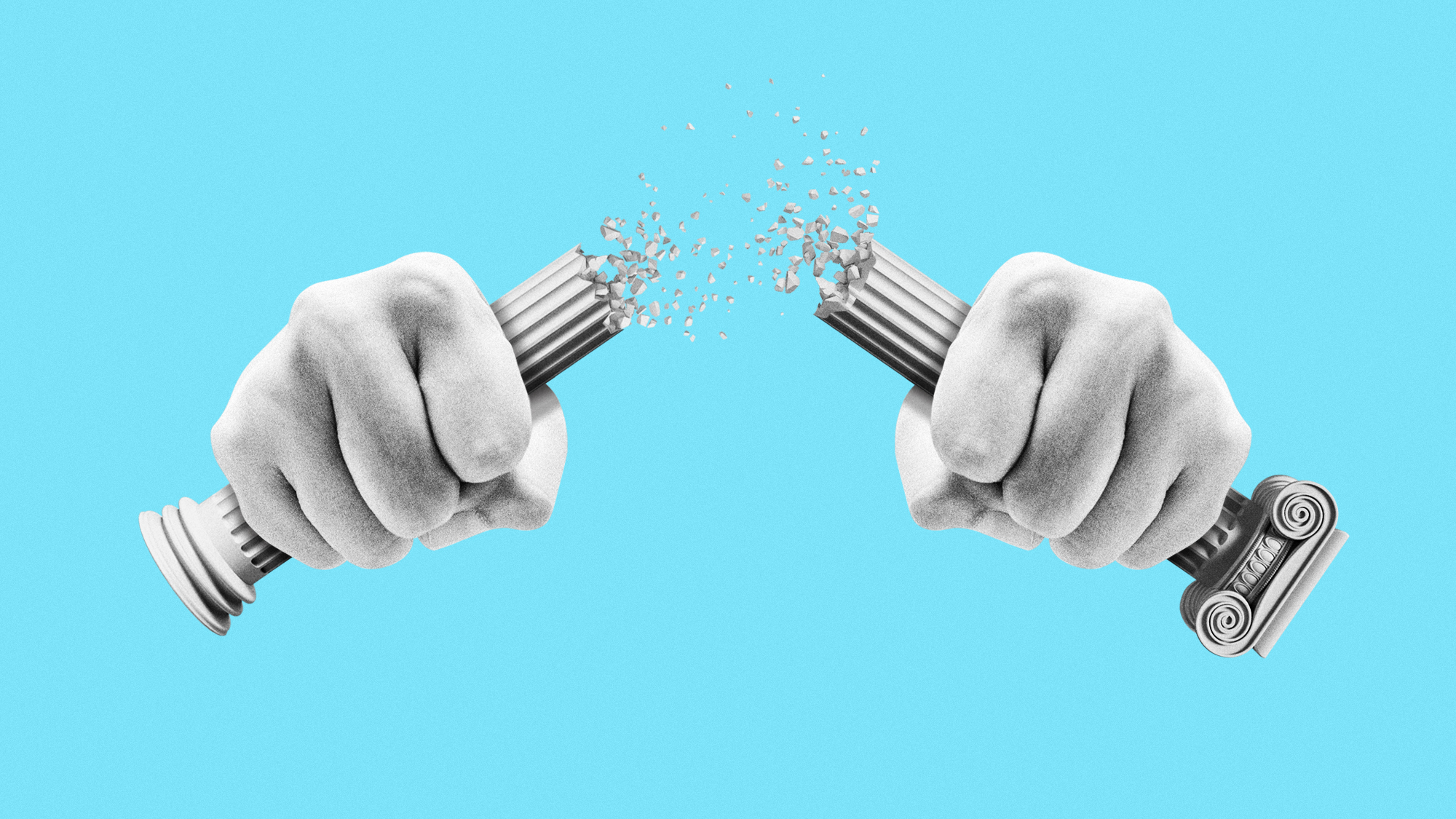 How robust is the rule of law in the US?
How robust is the rule of law in the US?TODAY’S BIG QUESTION John Roberts says the Constitution is ‘unshaken,’ but tensions loom at the Supreme Court
-
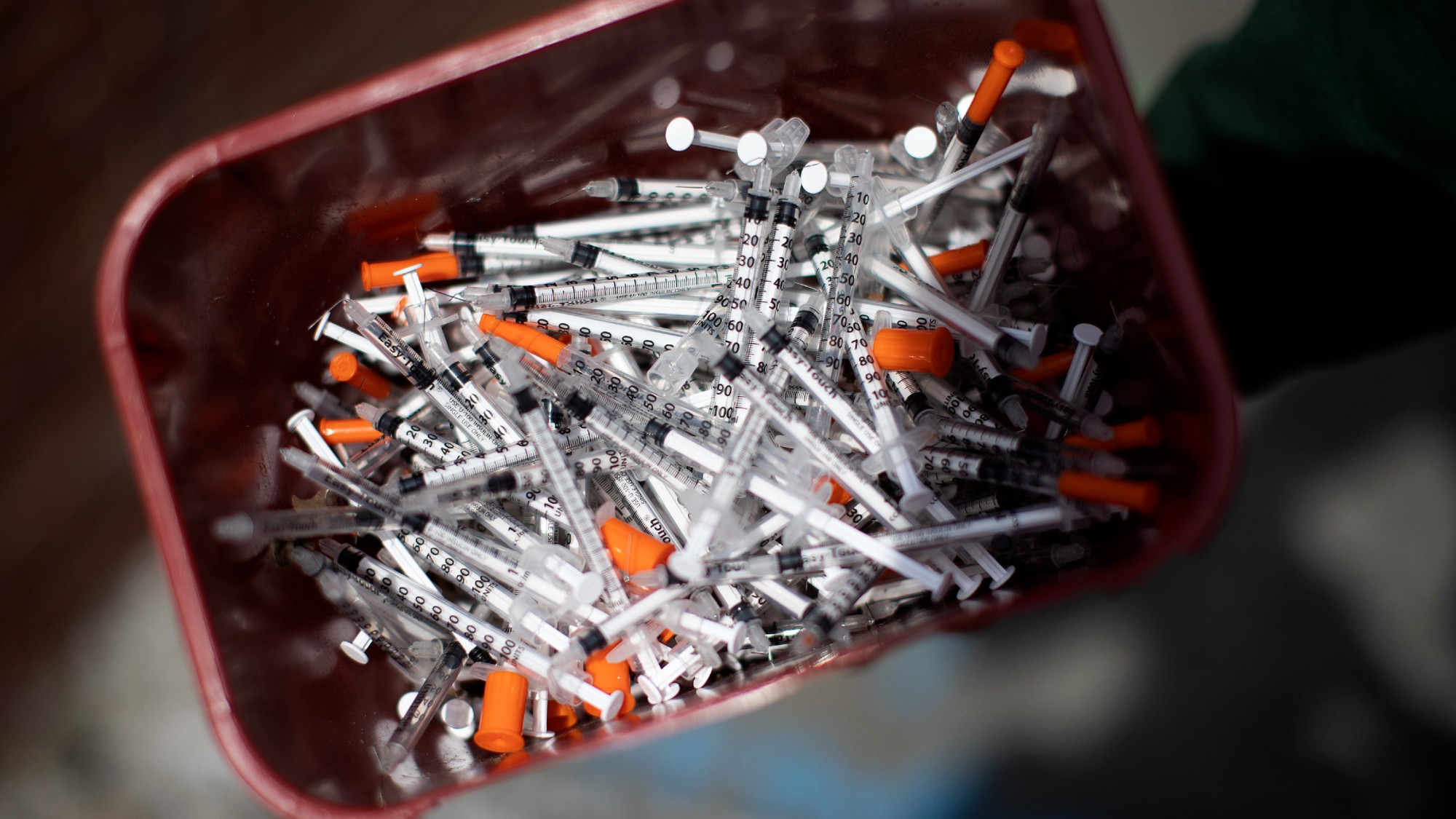 ‘The money to fix this problem already exists’
‘The money to fix this problem already exists’Instant Opinion Opinion, comment and editorials of the day
-
 The ‘Kavanaugh stop’
The ‘Kavanaugh stop’Feature Activists say a Supreme Court ruling has given federal agents a green light to racially profile Latinos
-
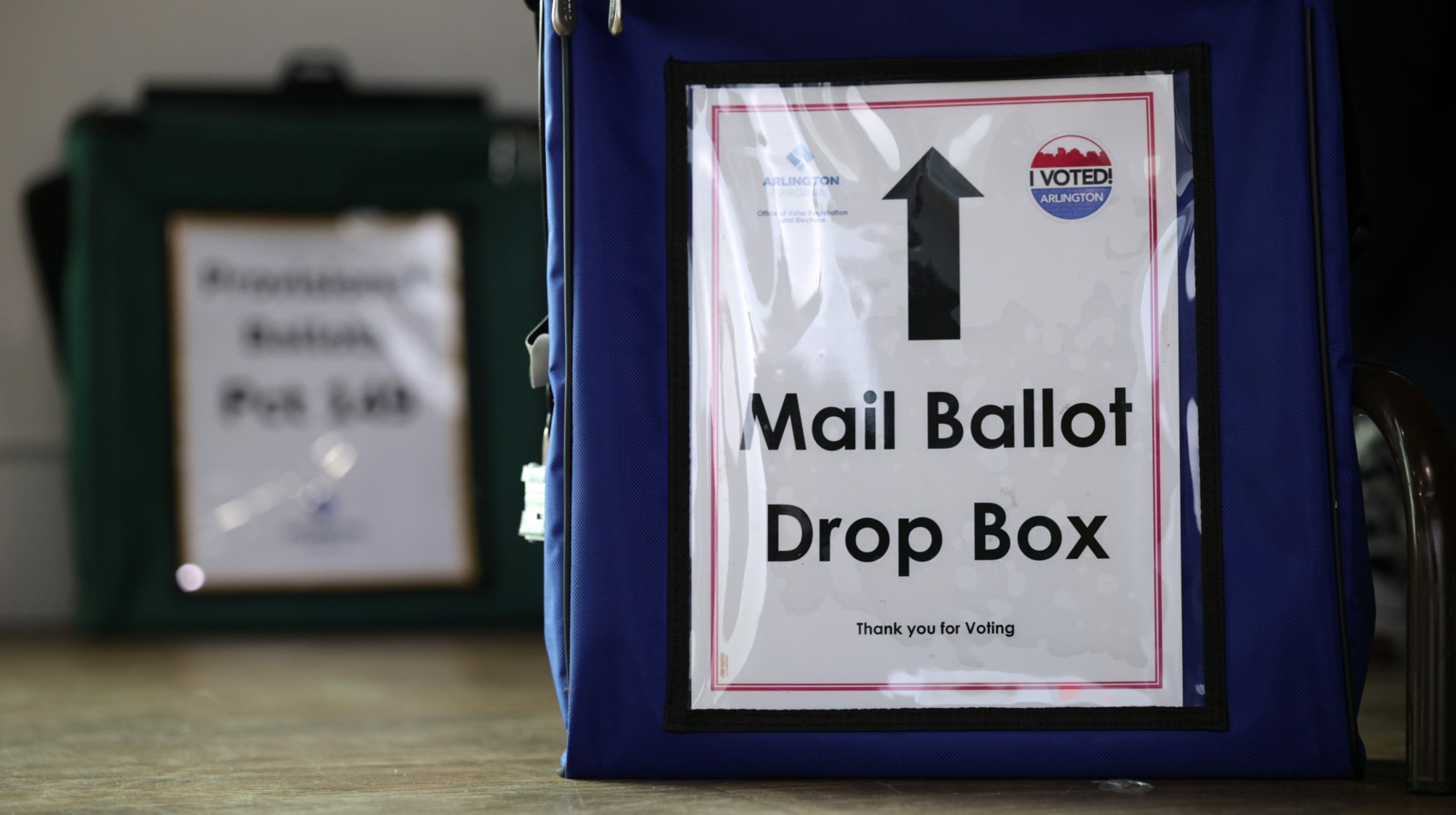 Supreme Court to decide on mail-in ballot limits
Supreme Court to decide on mail-in ballot limitsSpeed Read The court will determine whether states can count mail-in ballots received after Election Day
-
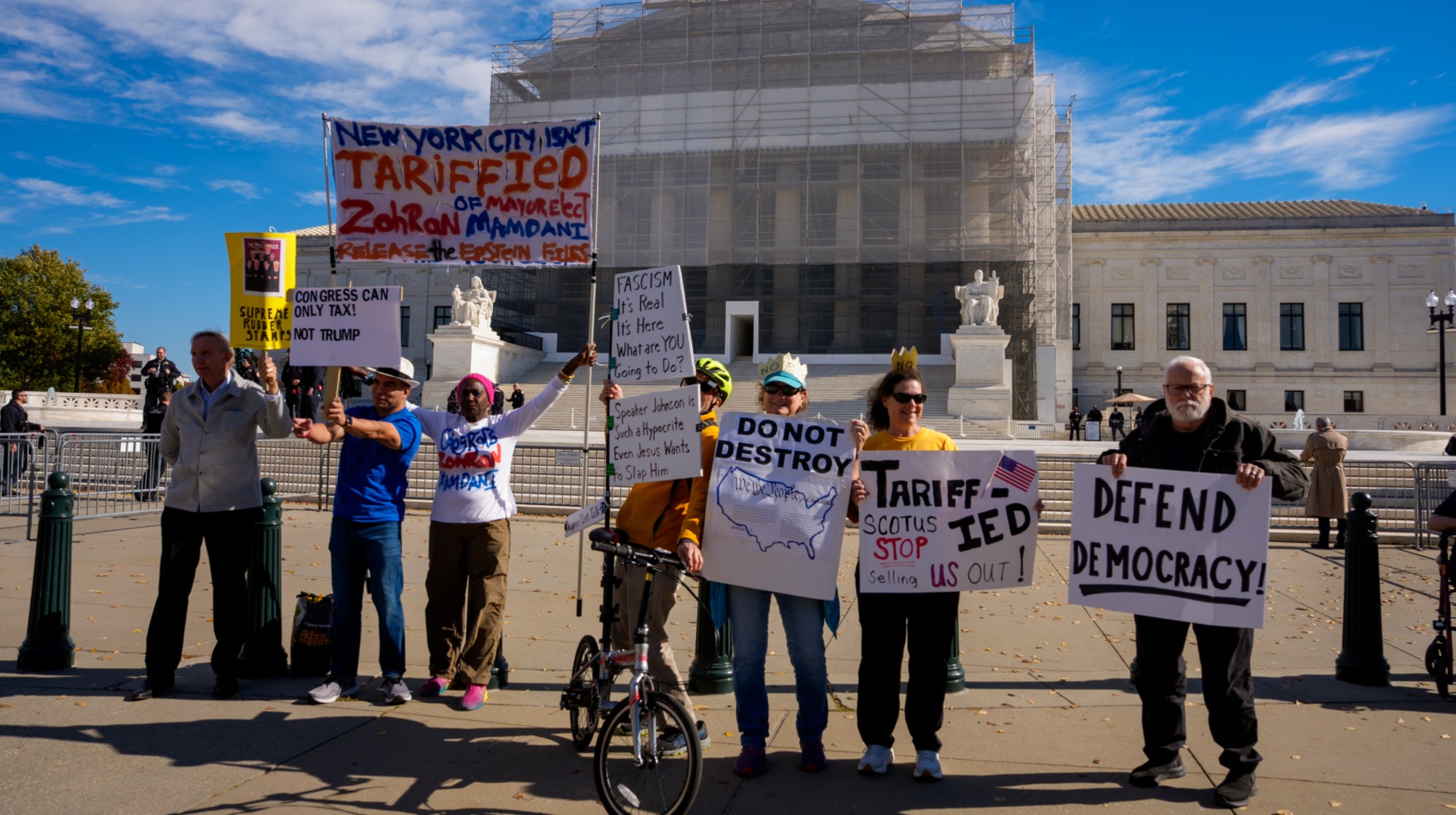 Trump tariffs face stiff scrutiny at Supreme Court
Trump tariffs face stiff scrutiny at Supreme CourtSpeed Read Even some of the Court’s conservative justices appeared skeptical
-
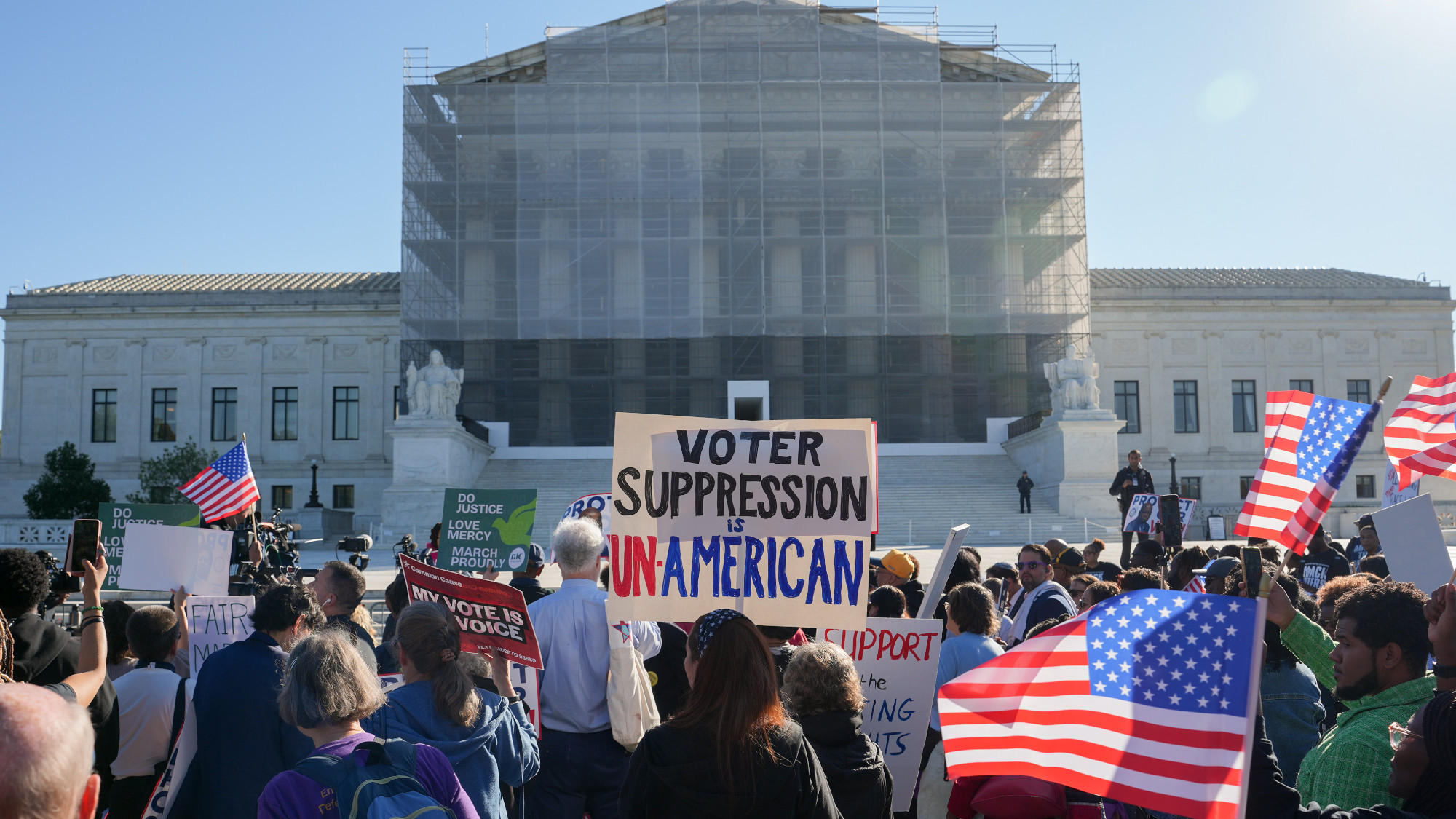 Voting Rights Act: SCOTUS’s pivotal decision
Voting Rights Act: SCOTUS’s pivotal decisionFeature A Supreme Court ruling against the Voting Rights Act could allow Republicans to redraw districts and solidify control of the House
-
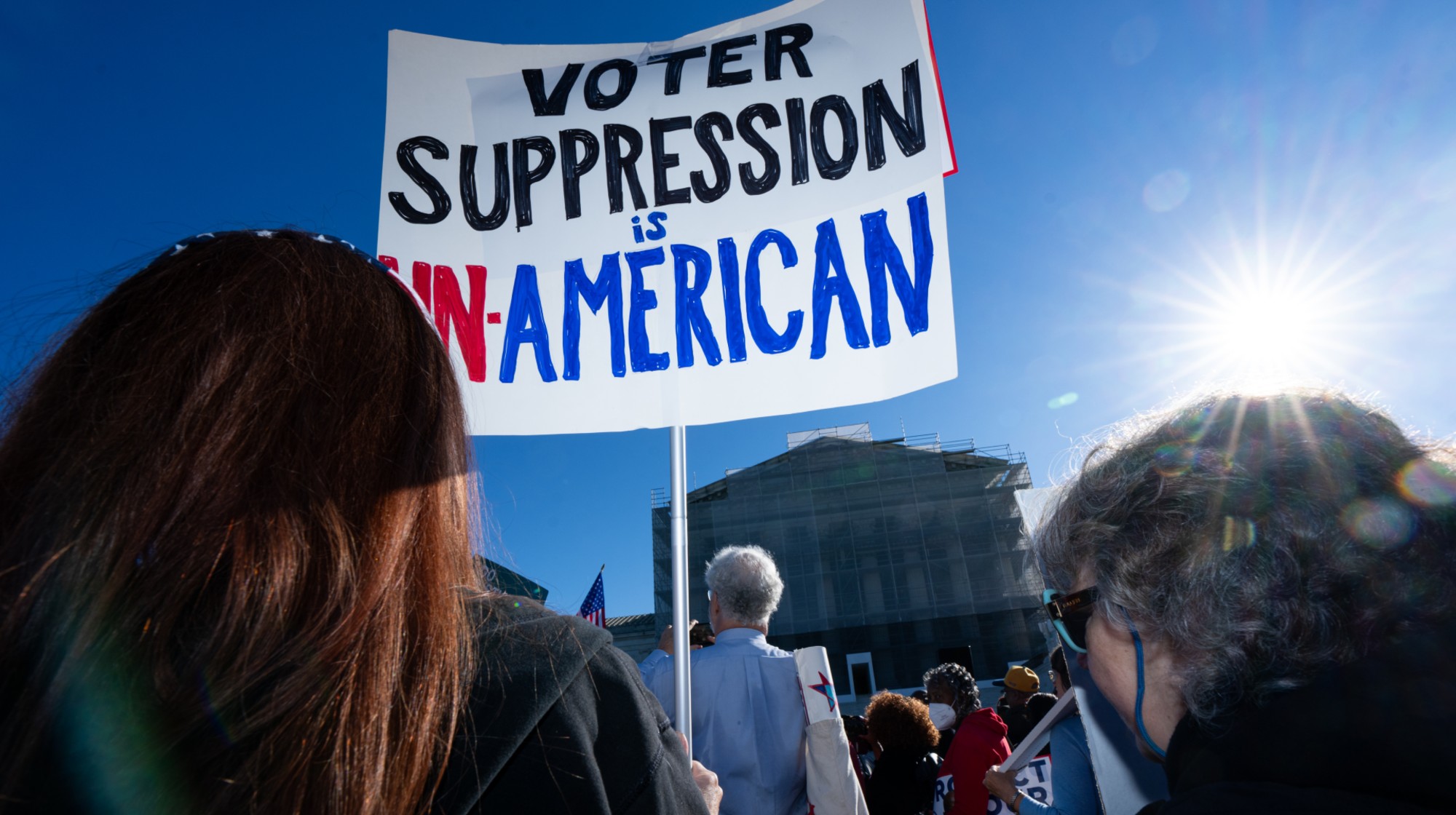 Supreme Court points to gutting Voting Rights Act
Supreme Court points to gutting Voting Rights Actspeed read States would no longer be required to consider race when drawing congressional maps
